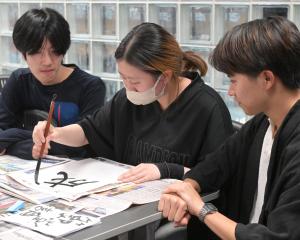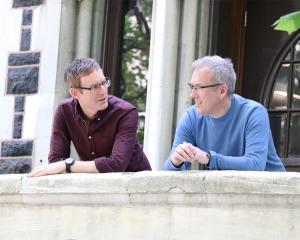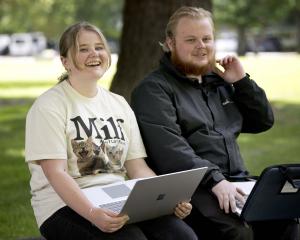
University of Otago molecular neurobiologist Prof Stephanie Hughes recently received $174,851 to continue her groundbreaking search for Batten disease treatments.
The rare disease is a family of genetic diseases with mutations in one of 13 genes, which causes the recycling machinery in neurons to go haywire, leading to the death of the neurons.
Prof Hughes said children with the disease were healthy at first, but between the ages of about 5 and 10, they started to develop vision problems, seizures, personality and behaviour changes, slow learning and clumsiness or stumbling.
The symptoms gradually get worse, leaving the children blind, bedridden, cognitively impaired, and they usually die before they reach their late teens or 20s.
Prof Hughes said New Zealand research on the disease started when scientist Bob Jolly discovered sheep with very similar symptoms in the 1980s.
"These sheep had brain cells that looked very similar to those of humans with the disease — stunted cells with protein accumulating within the cells' recycling centres, known as lysosomes."
Prof Hughes began her PhD by studying the disease, and after finishing her PhD in 1999, she went on to learn about a new approach to treat genetic disorders — gene therapy.
She said the basic idea of gene therapy was to put a therapeutic gene (in this case a copy of the gene without a mutation) into a disabled virus, then use the virus to transfer that gene into the part of the body where the non-mutated gene was needed.
She learned how to make these viral vectors and carry out gene therapy in mice.
Since 2008, she has been at the University of Otago continuing her work on Batten disease and gene therapy.
Her research team has since successfully made a gene therapy for a type of Batten disease known as CLN5, which recently progressed from animal testing to human trials.
She now planned to use the recent funding grant to work on a gene therapy for children with type CLN1.
"Treatments are currently limited to symptom relief," she said.
"The most common mutation in CLN1 disease, a premature stop signal, results in a short protein being produced and a loss of an enzyme required to keep neurons healthy.
"Our goal is to trick the cell into correcting the faulty stop signal so that a functional protein is produced.
"We will test our strategy in a CLN1 mouse model to test the effects on disease progression.
"If successful, this approach could benefit many CLN1 patients."
She said the Otago research work was being done in collaboration with United States investigators.
Prof Hughes was one of six University of Otago researchers recently awarded a share of more than half a million dollars in the latest Neurological Foundation funding round.
The others are. —
• Dr Bruce Mockett received $175,549 to develop new mouse models of dementia that will enable testing of a promising new gene therapy — an injection into the blood of a harmless virus carrying the DNA for a therapeutic protein that would enhance brain health and counteract the symptoms of dementia.
• Associate Prof Megan Wilson received $143,155 to study how changes in the spinal cord’s nerve cells might lead to scoliosis in adolescents.
• Dr Toni Pitcher received $194,910 for her work in Parkinson’s, analysing data and identifying trends in treatment to help healthcare, support services and researchers improve the care of people with Parkinson’s.
• University of Otago summer students Amy Pollard and Jordan Doran received $8500. Ms Pollard will investigate whether a treatment called agmatine can reduce hyperactivity and brain inflammation after prenatal exposure to viral infections, while Mr Doran will look at how mutations in the CRNKL1 gene can lead to neurodevelopmental disorders.












